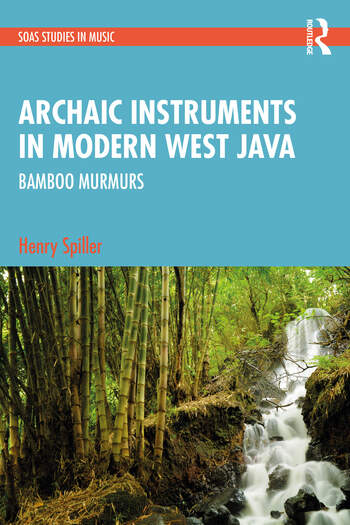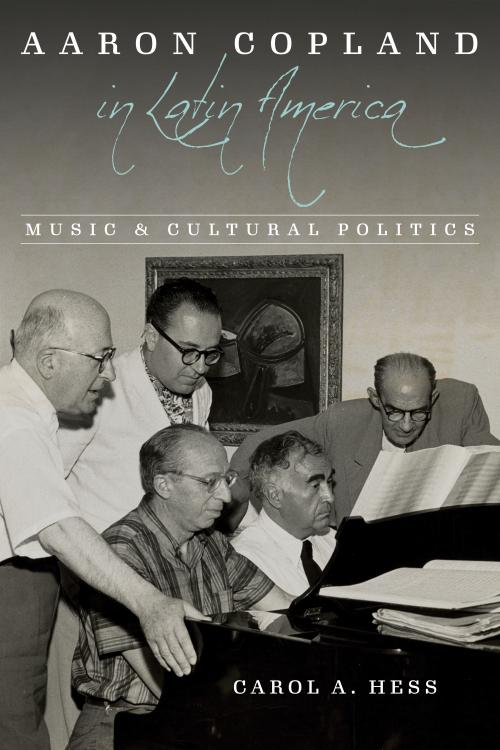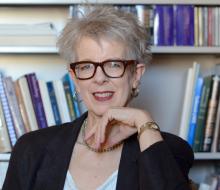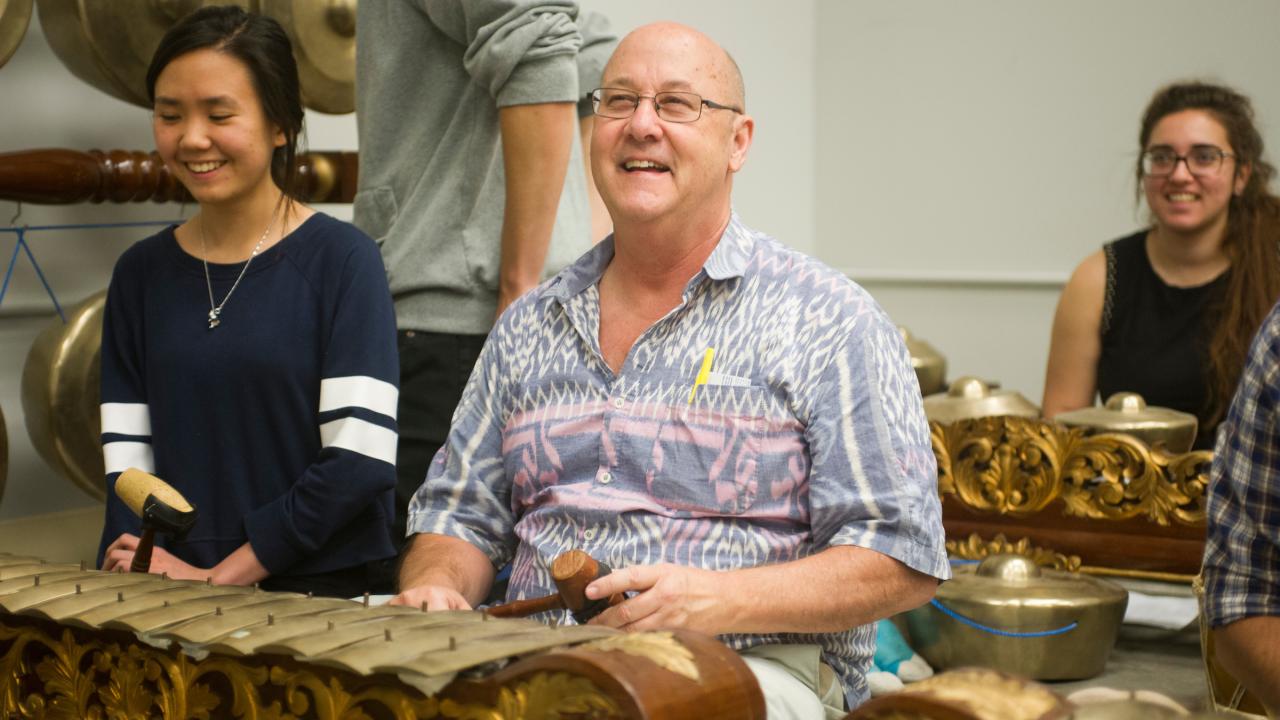Bamboo music's association with the Sundanese landscape featured
- Archaic Instruments in Modern West Java: Bamboo Murmurs
- By Henry Spiller, Professor of Music, Graduate Advisor for Ethnomusicology and Musicology
- Routledge Press (2023)
-

Overview:
Archaic Instruments in Modern West Java: Bamboo Murmurs explores how current residents of Bandung, Indonesia, have (re-)adopted bamboo musical instruments to forge meaningful bridges between their past and present — between traditional and modern values. Although it focuses specifically on Bandung, the cosmopolitan capital city of West Java, the book grapples with ongoing issues of global significance, including musical environmentalism, heavy metal music, the effects of first-world hegemonies on developing countries, and cultural “authenticity.” Bamboo music's association with the Sundanese landscape, old agricultural ceremonies, and participatory music making, as well as its adaptability to modern society, make it a fertile site for an ecomusicological study.
About the author:
Henry Spiller is professor in the Department of Music at University of California, Davis, and the author of several books, including FOCUS: Gamelan Music of Indonesia.
Aaron Copland in Latin America
- Aaron Copland in Latin America: Music and Cultural Politics
- By Carol Hess, Distinguished Professor of Music
- University of Illinois Press (February 2023)
-

Overview:
Between 1941 and 1963, Aaron Copland made four government-sponsored tours of Latin America that drew extensive attention at home and abroad. Interviews with eyewitnesses, previously untapped Latin American press accounts, and Copland’s diaries inform Carol A. Hess’s in-depth examination of the composer’s approach to cultural diplomacy. As Hess shows, Copland’s tours facilitated an exchange of music and ideas with Latin American composers while capturing the tenor of United States diplomatic efforts at various points in history. In Latin America, Copland’s introduced works by U.S. composers (including himself) through lectures, radio broadcasts, live performance, and conversations. Back at home, he used his celebrity to draw attention to regional composers he admired. Hess’s focus on Latin America’s reception of Copland provides a variety of outside perspectives on the composer and his mission. She also teases out the broader meanings behind reviews of Copland and examines his critics in the context of their backgrounds, training, aesthetics, and politics.
About the author:

Carol A. Hess is a professor of musicology at UC Davis. She is the author of Experiencing Latin American Music and Representing the Good Neighbor: Music, Difference, and the Pan American Dream.
